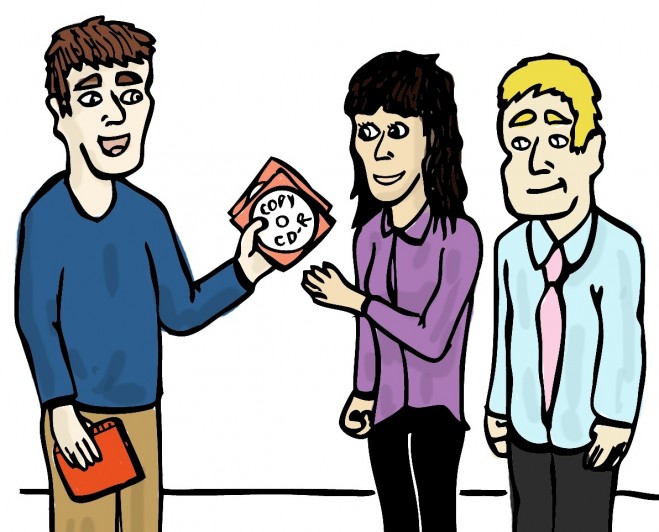
Using the the term “piracy” to describe copyright infringement is a pejorative metaphor that takes copyright infringement and file sharing, something that is relatively benign and non-destructive (though definitely disruptive to the way we currently distribute media) and maps it onto theft and violence. There are certainly still conversations to be had about content and media distribution and compensation, but these discussions would be best served by cutting out deceptive language like “piracy.” Aaron Swartz wrote on this misconception in a blog post, where he wrote:
“Stealing is wrong. But downloading isn’t stealing. If I shoplift an album from my local record store, no one else can buy it. But when I download a song, no one loses it and another person gets it. There’s no ethical problem. The evidence that downloading hurts sales is weak, but even if downloading did hurt sales, that doesn’t make it unethical. Libraries, video rental places, and used book stores (none of which pay the artist) hurt sales too. Is it unethical to use them?”
Swartz also elaborated on this topic in a cut NYT point/counterpoint.
This post was updated February 10th, 2014.